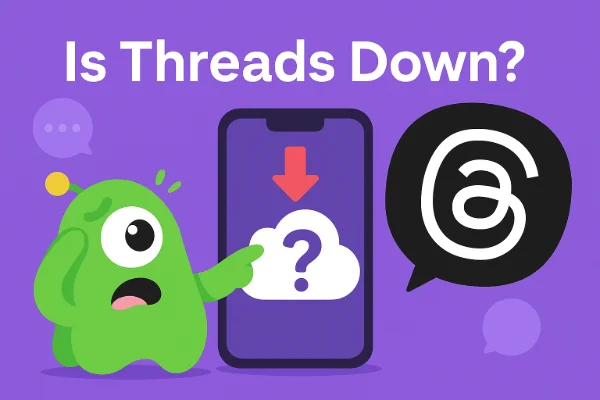What Is Coinbase?

Coinbase is one of the largest cryptocurrency exchanges in the world, serving millions of users across more than 100 countries. It allows people to buy, sell, and store digital assets like Bitcoin, Ethereum, and hundreds of altcoins. Beyond trading, Coinbase also offers staking, a built-in wallet, and an educational rewards program.
Since its founding in 2012, Coinbase has built a reputation as a beginner-friendly and regulated exchange. In the U.S., it is a publicly listed company (NASDAQ: COIN), which gives it added credibility compared to offshore crypto exchanges. However, like any online financial platform, security and trustworthiness remain top concerns.
How Safe Is Coinbase in 2026?
Coinbase continues to maintain industry-leading security practices, but “safe” in crypto is always a relative term. Coinbase employs:
- Cold storage: The majority of customer funds are stored offline.
- Two-factor authentication (2FA): Adds an extra layer beyond passwords.
- Insurance coverage: Certain assets stored in hot wallets are insured against hacks.
- Regulatory compliance: Coinbase must follow U.S. financial regulations, including KYC (Know Your Customer) and AML (Anti-Money Laundering) laws.
That said, safety also depends on user behavior. Even with robust exchange-level security, phishing attacks, SIM-swapping, and account takeovers remain real threats. This means that while Coinbase is generally safe, users must also practice personal security hygiene.
Pros and Cons of Using Coinbase
✅ Pros
- Reputable & regulated – One of the few publicly traded exchanges.
- Beginner-friendly – Easy-to-use mobile app and web platform.
- Insurance protection – Limited coverage for digital assets in case of breaches.
- Diverse crypto offerings – Supports popular and emerging tokens.
- Liquidity & speed – High-volume trading ensures fast execution.
❌ Cons
- Higher fees compared to competitors like Binance or Kraken.
- Not fully decentralized – You don’t fully control your private keys unless you transfer to an external wallet.
- Past outages during high traffic, sometimes preventing trades.
- Bank linking risks – Adding a bank account means sharing sensitive financial data.
Is It Safe to Link Your Bank Account to Coinbase?
Linking your bank account to Coinbase makes it easier to deposit and withdraw funds, but it also introduces additional risks.
Potential Concerns:
- Data exposure: Your banking details are stored by Coinbase, making them a potential target if systems are ever breached.
- Unauthorized transactions: In the event of account compromise, a linked bank account could be misused.
- Privacy risks: Sharing direct bank information reduces financial anonymity.
👉 For extra protection, some users prefer using a separate bank account (dedicated only to crypto transactions) or using payment methods like PayPal to limit exposure.
And importantly, if you access Coinbase while traveling or on public WiFi, it’s wise to use a VPN such as UFO VPN This ensures your banking data and login sessions are encrypted, preventing snoopers from intercepting sensitive information. 🌍🔒
What Are the Risks of Using Coinbase?
Even with strong security measures, Coinbase is not risk-free. The main concerns include:
- Phishing & Social Engineering – Attackers trick users with fake emails or websites.
- SIM Swapping Attacks – Hackers hijack your phone number to bypass SMS 2FA.
- Regulatory Risks – Governments may tighten rules, impacting withdrawals or access.
- Exchange Vulnerabilities – While rare, no platform is immune to cyberattacks.
- Privacy Concerns – Coinbase is fully compliant with regulators, meaning user data can be shared with authorities.
These risks highlight why personal security practices are just as important as choosing a secure exchange.
How to Protect Yourself While Using Coinbase
If you plan to use Coinbase, here are the essential security strategies every crypto user should follow:
Enable Strong Two-Factor Authentication (2FA) 🔑
Never rely on just a password. Instead of SMS (easily intercepted), use an authenticator app like Google Authenticator or Authy. For maximum security, consider hardware security keys (YubiKey) which add an extra layer of protection.
Use a Hardware Wallet for Long-Term Storage 💾
Coinbase is convenient, but exchanges are always potential targets. Store large amounts of crypto in cold wallets (Ledger, Trezor) and only keep smaller, active trading amounts on the exchange. This way, even if your Coinbase account is compromised, most of your assets remain safe.
Be Cautious with Bank Linking 🏦
While Coinbase is regulated and supports direct bank integration, linking your primary bank account could expose your main funds if there’s a breach. A smart practice is to create or use a secondary bank account dedicated only to crypto transactions.
Avoid Public WiFi Without a VPN 🌐
Coffee shop or airport WiFi is convenient, but also risky — hackers can intercept your data. With UFO VPN, you can encrypt all your internet traffic, ensuring that your logins, transactions, and API keys remain hidden from potential attackers. This is especially useful if you travel often and access Coinbase on the go.
Stay Updated & Vigilant 🔍
Keep your Coinbase app and operating system updated to the latest versions.
Enable real-time account notifications for logins, withdrawals, or suspicious activity.
Never click on links in emails or DMs claiming to be from Coinbase—phishing attacks are still one of the biggest threats.
Secure Your Backups 🗂️
Back up your seed phrases and recovery codes and store them in multiple offline locations (e.g., a hardware wallet backup card or encrypted USB drive). Avoid cloud storage or email since they’re easier to hack.
Practice Good Device Hygiene 💻📱
Use strong, unique passwords stored in a password manager (Bitwarden, 1Password).
Keep devices free from malware with antivirus software.
Enable full-disk encryption on your phone and computer.
✅ By combining Coinbase’s built-in protections with these personal security practices (and using tools like UFO VPN for encrypted access), you’ll significantly lower your exposure to risks and ensure your crypto remains secure.
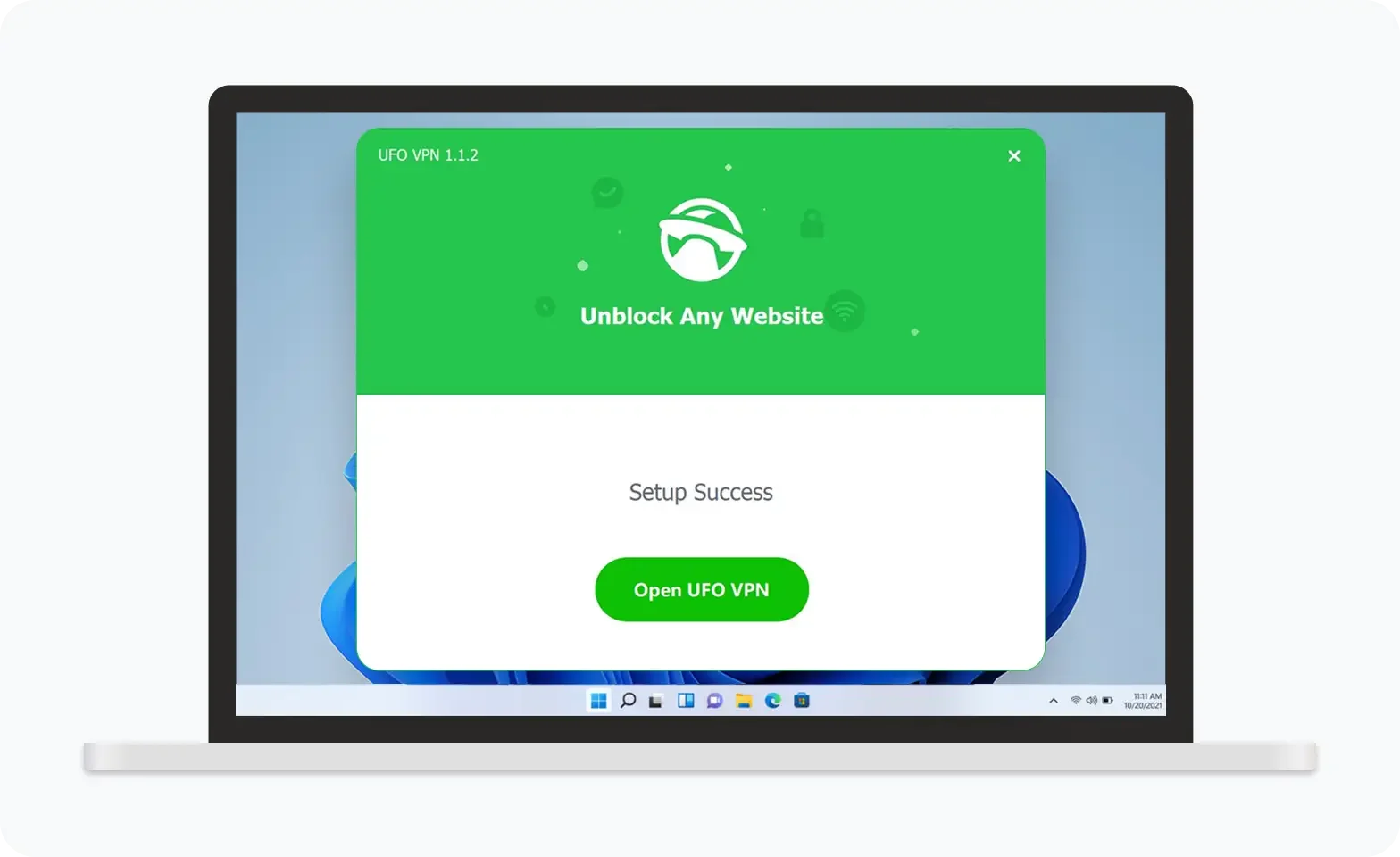
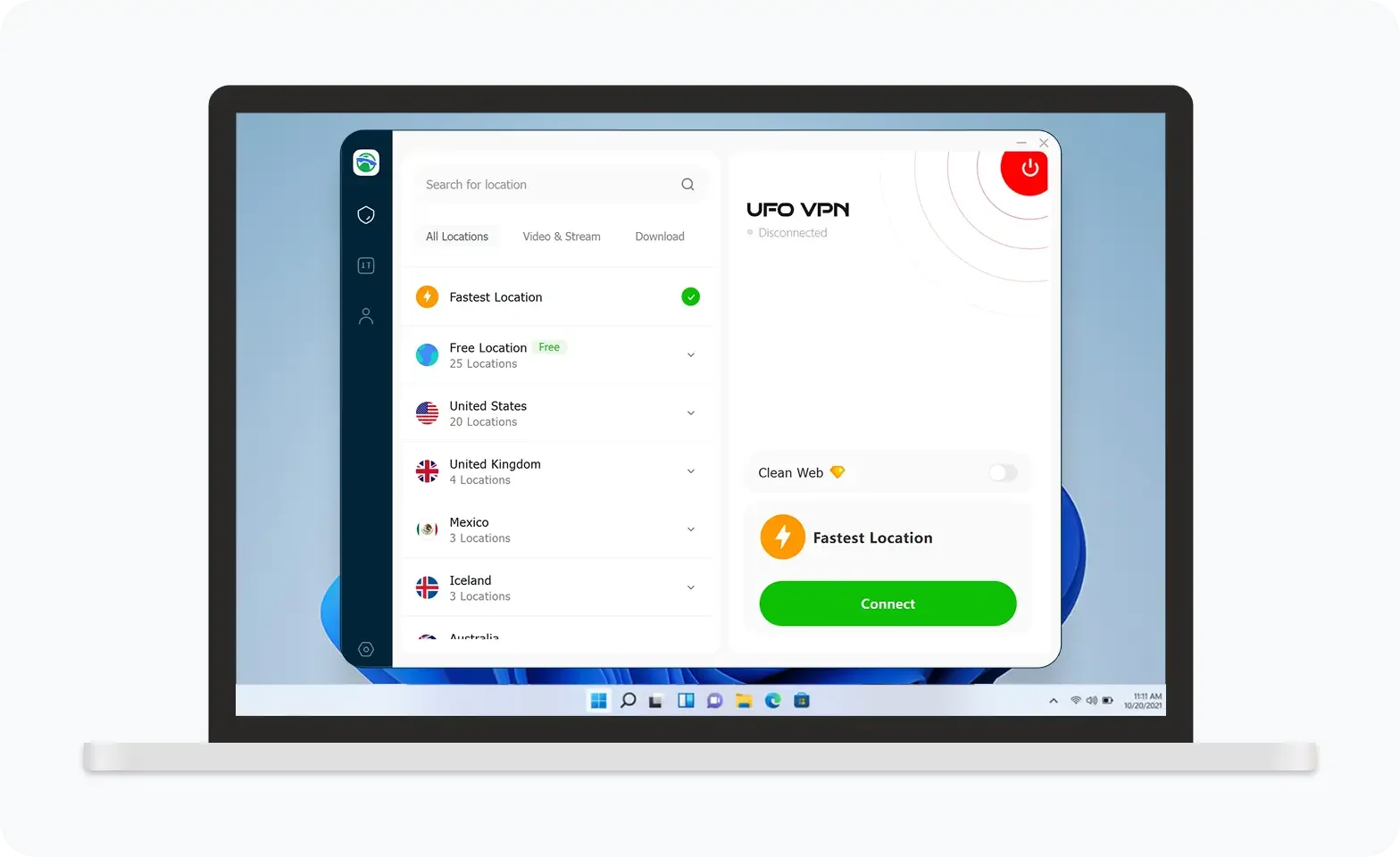
UFO VPN is an all-in-one VPN that offers unlimited access to 4D streaming like Netlfix, Disney Plus, no-ping gaming as PUBG, Roblox, CODM and social networking for YouTube, X, Facebook and more.
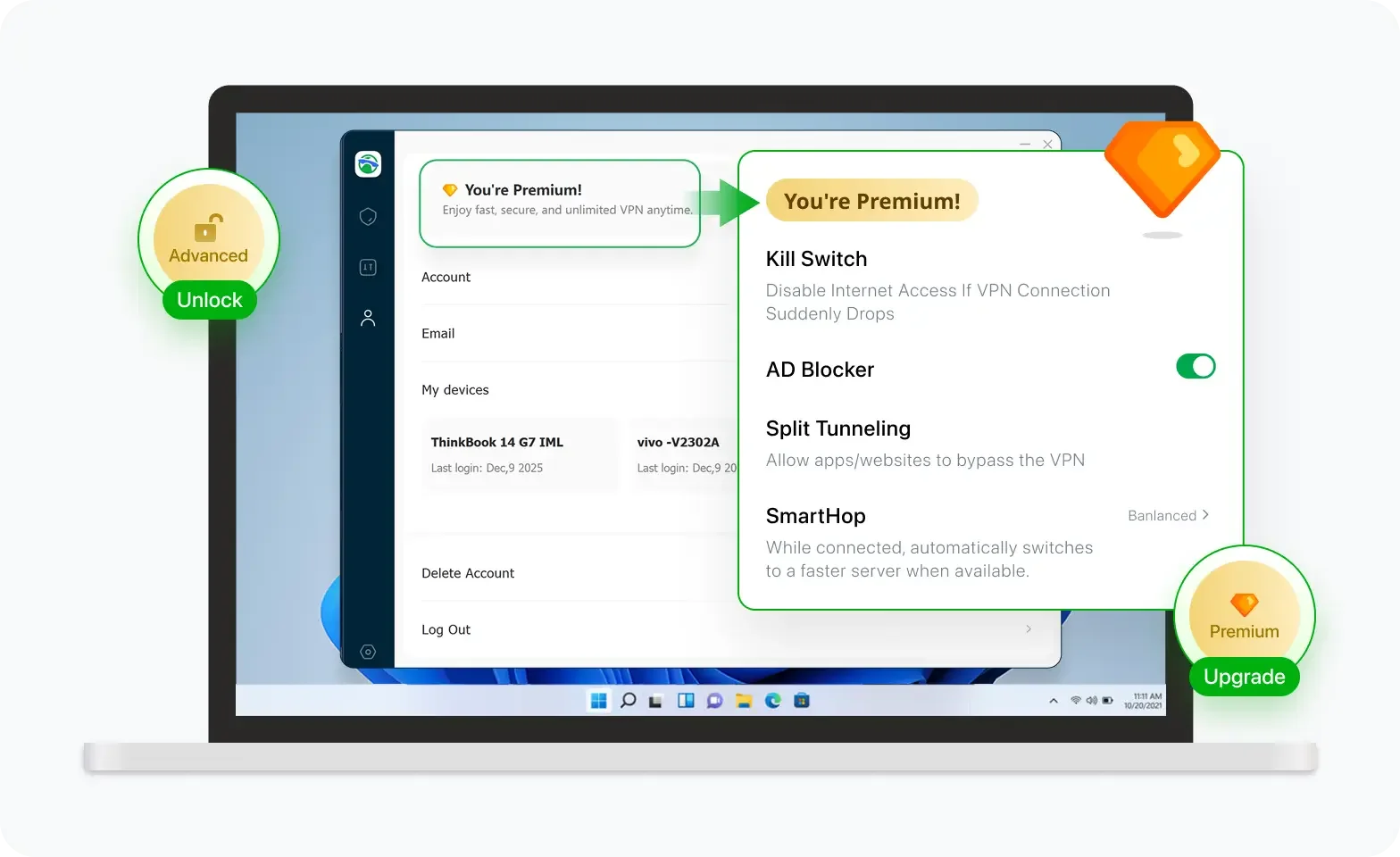
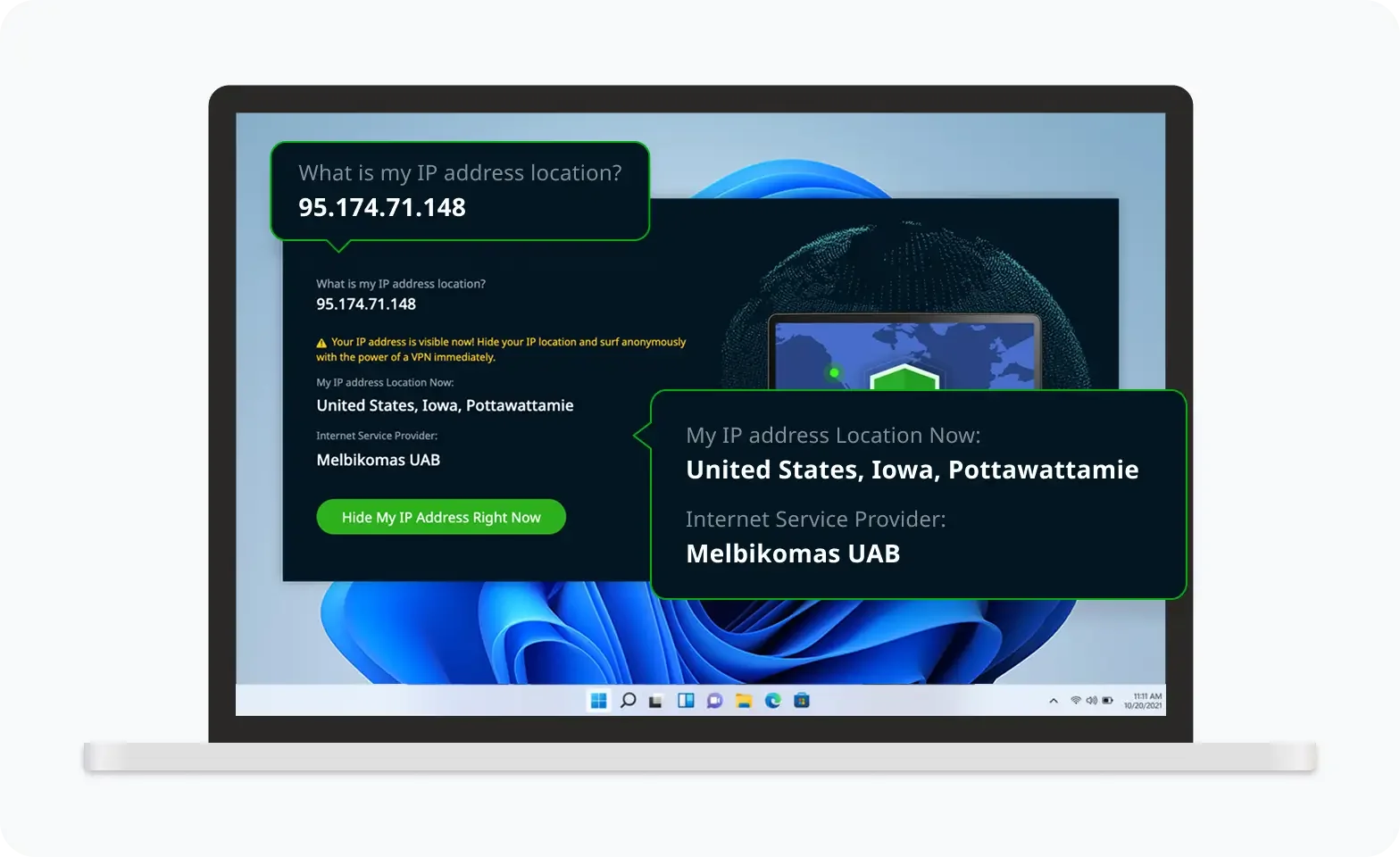
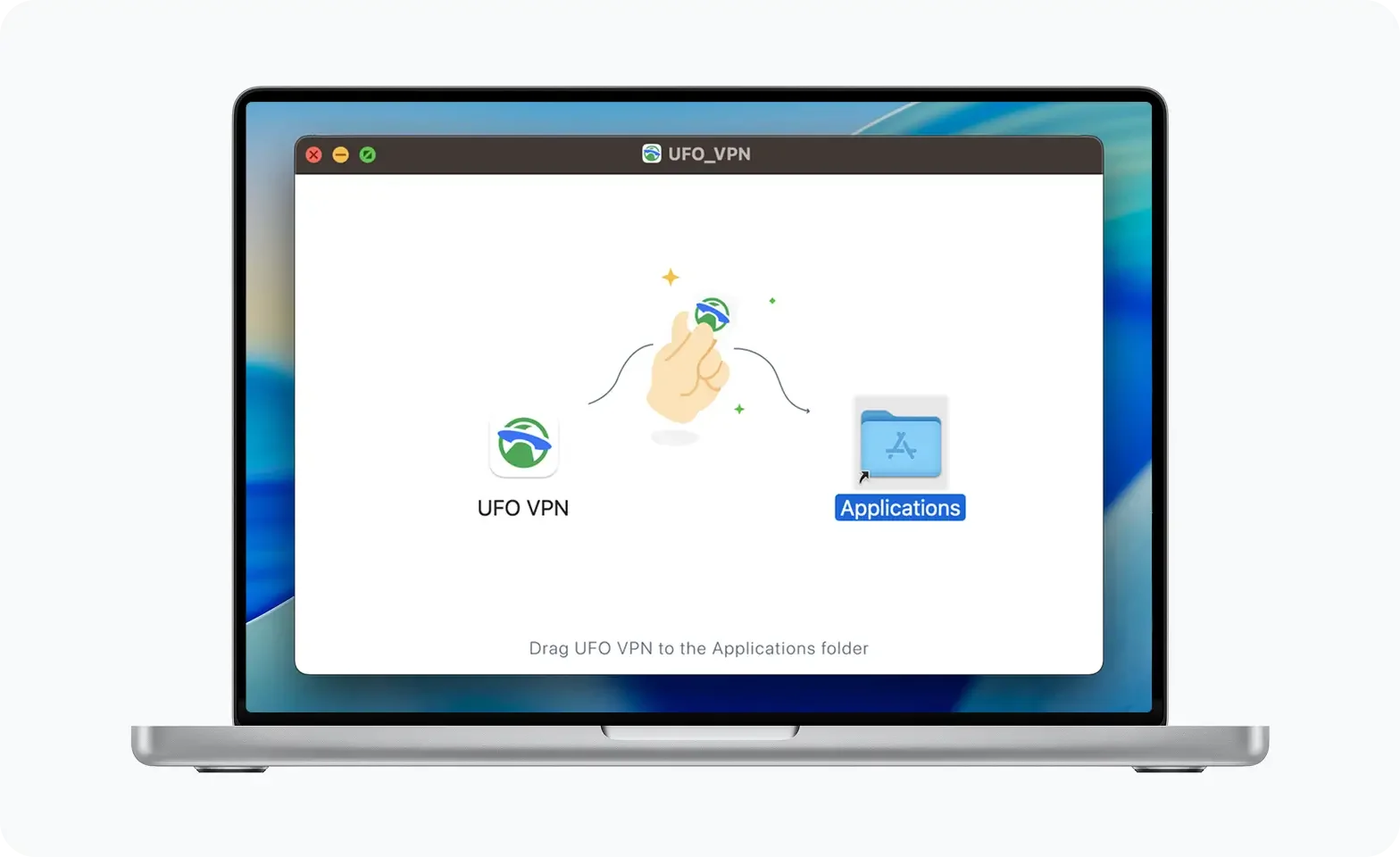
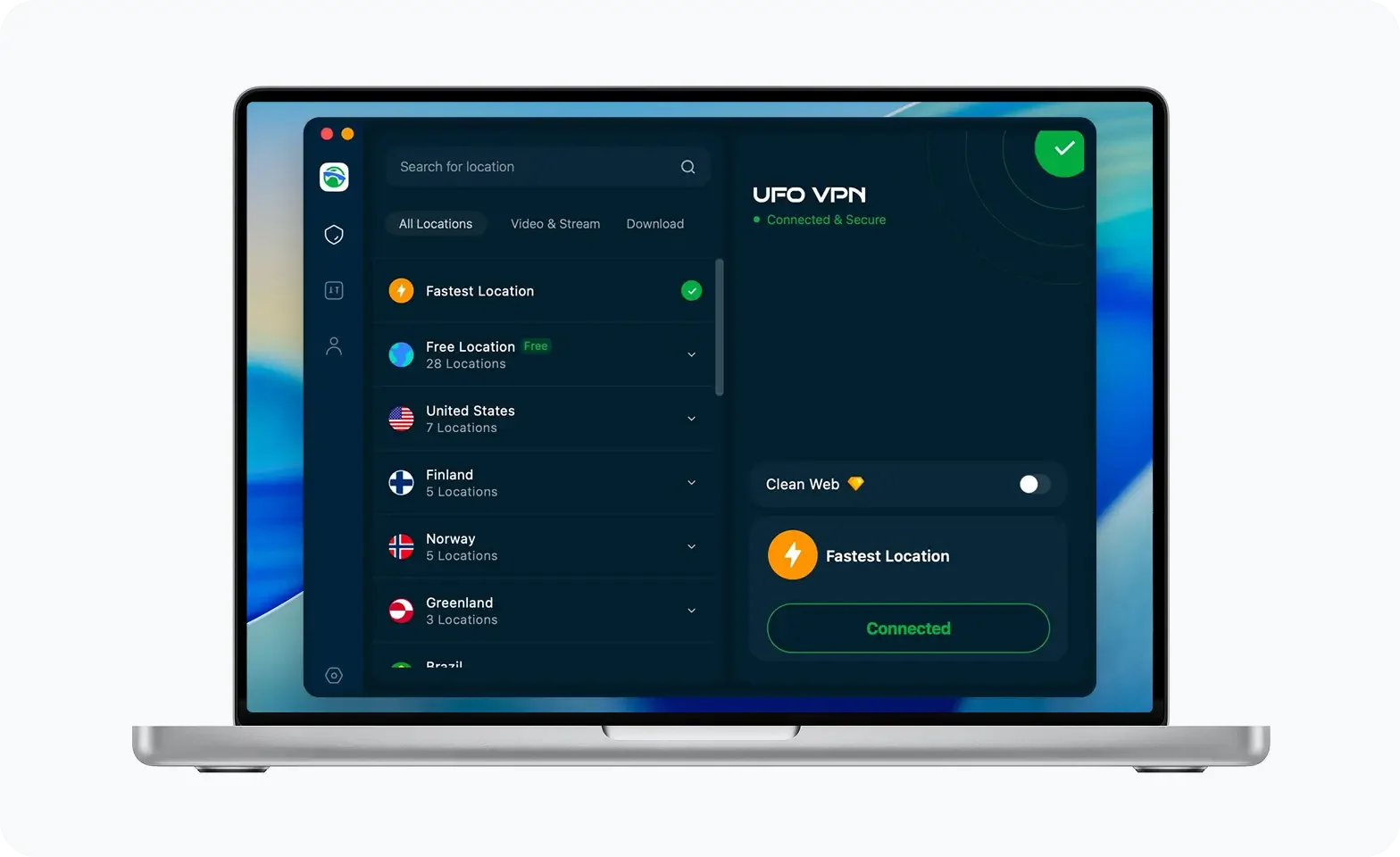
Unlock Pro Features
If you have upgraded to premium plan , feel free to enjoy premium servers for 4K streaming and advanced features like Kill Switch, Split Tunneling, and gaming acceleration. Your Mac is now fully optimized and protected. Inaddition to basic functions, we recommend you turn on

Verify Your IP Now
Use UFO VPN's " What is My IP " feature to see your new IP and location. This confirms your connection is secure, anonymous, and ready for safe browsing online anywhere at any time.

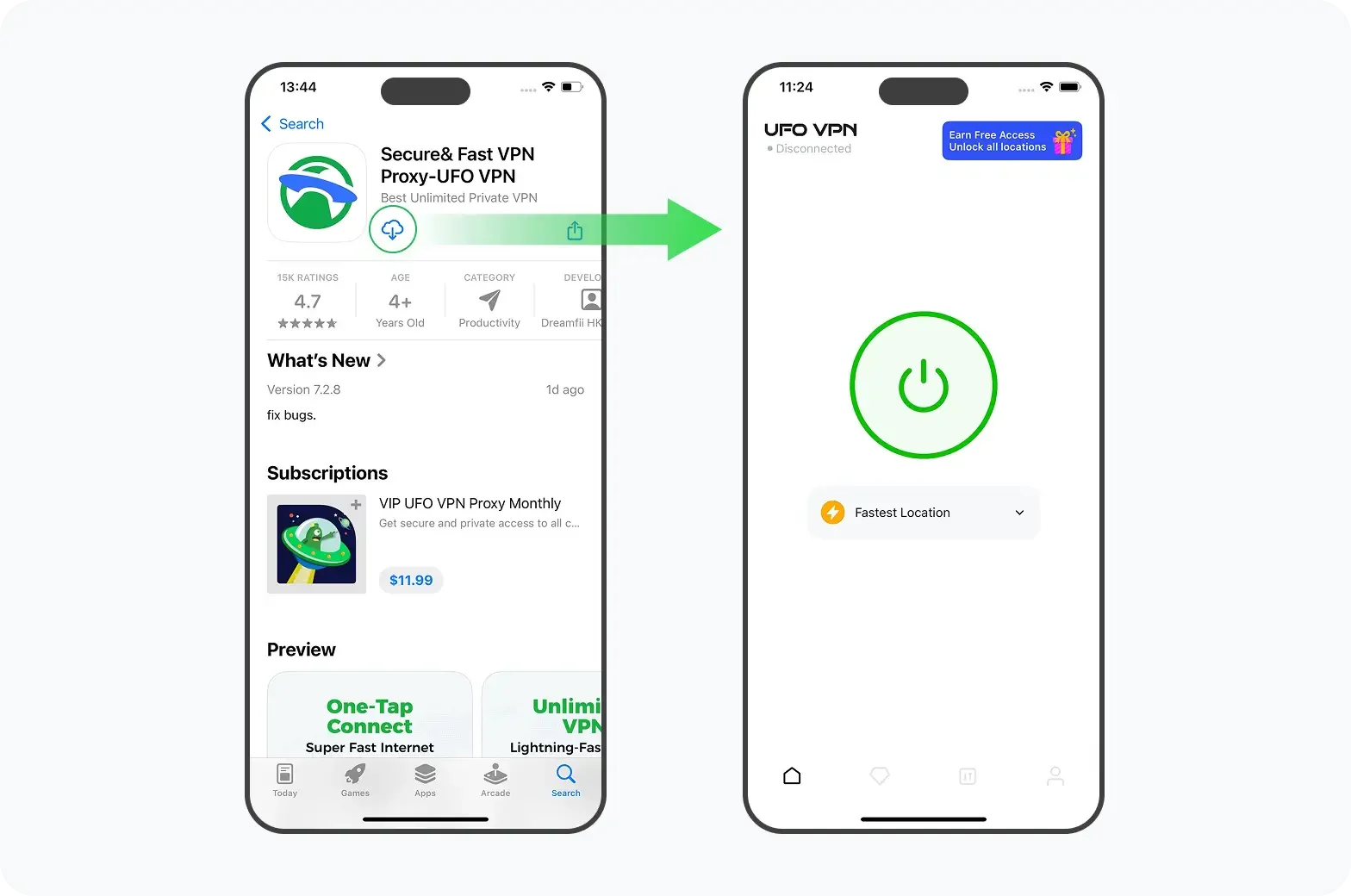
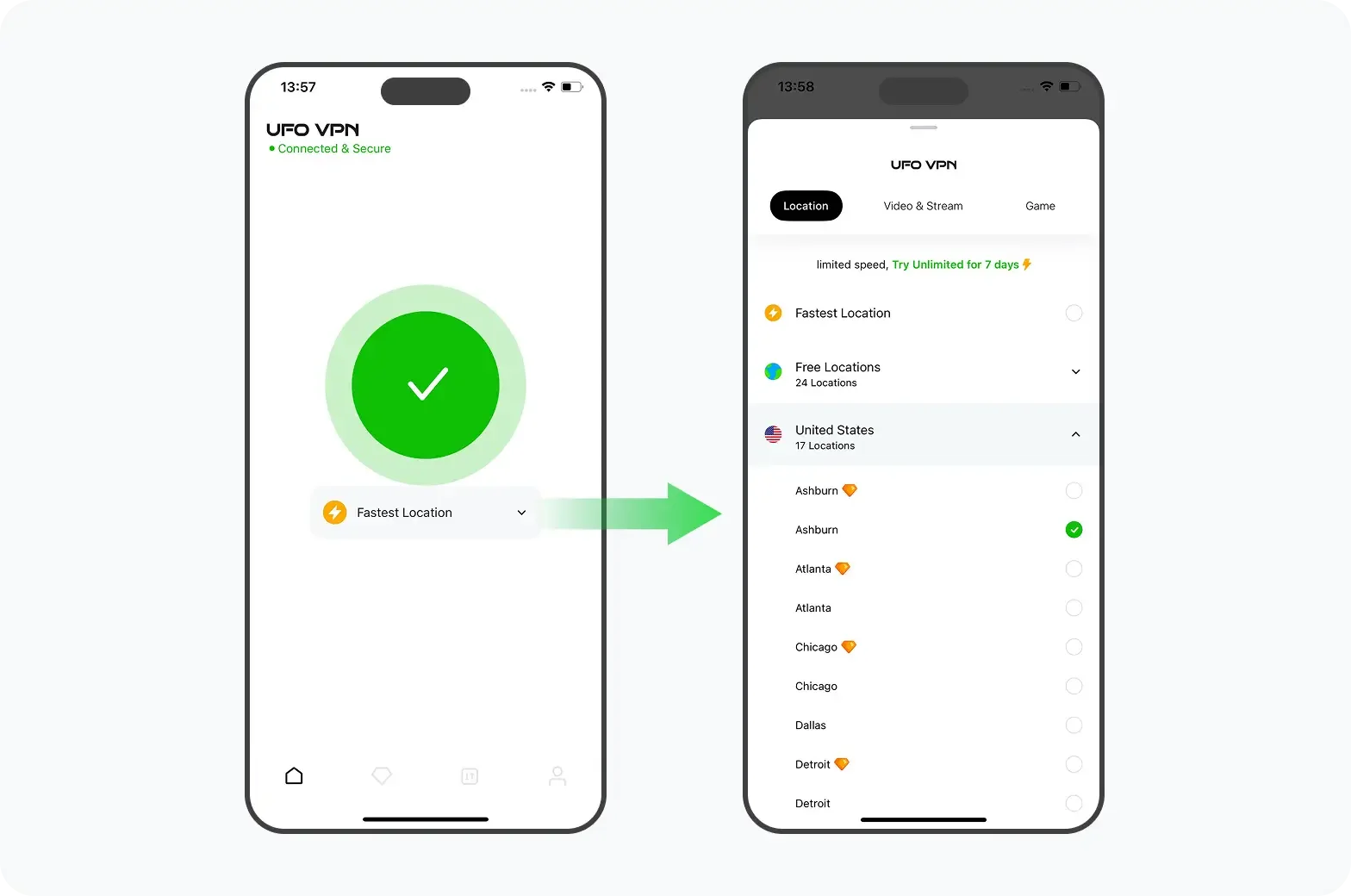
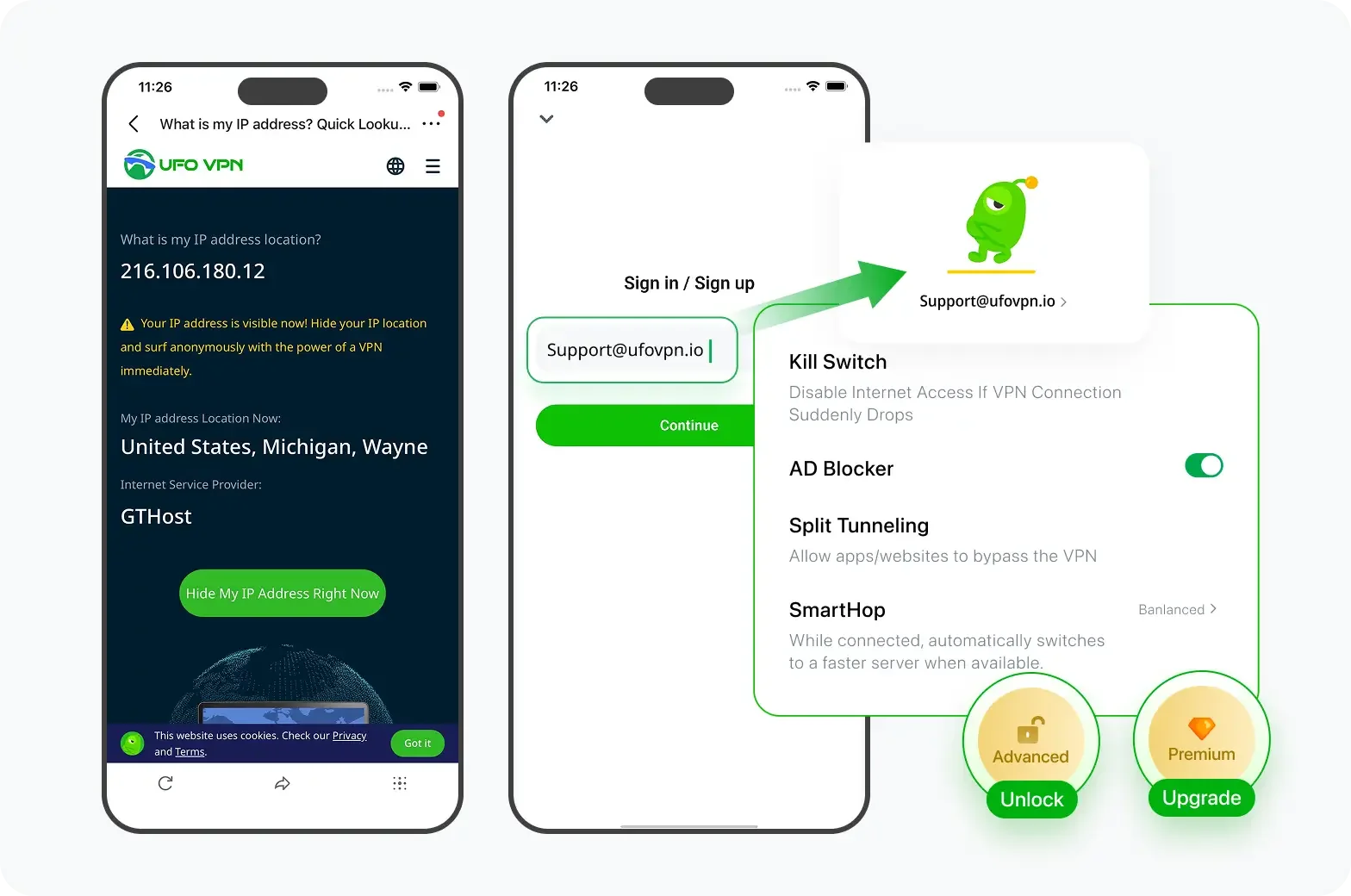
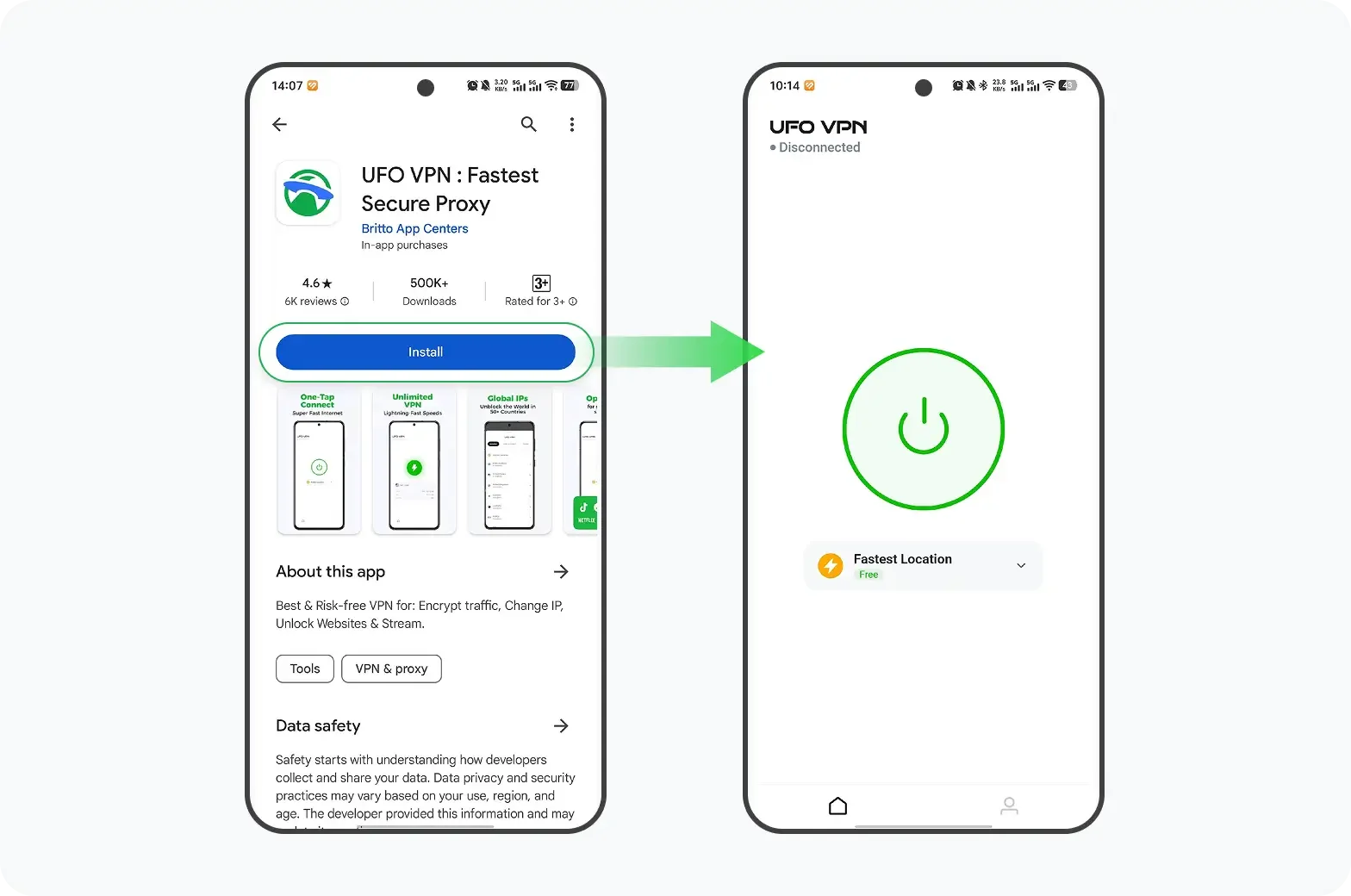
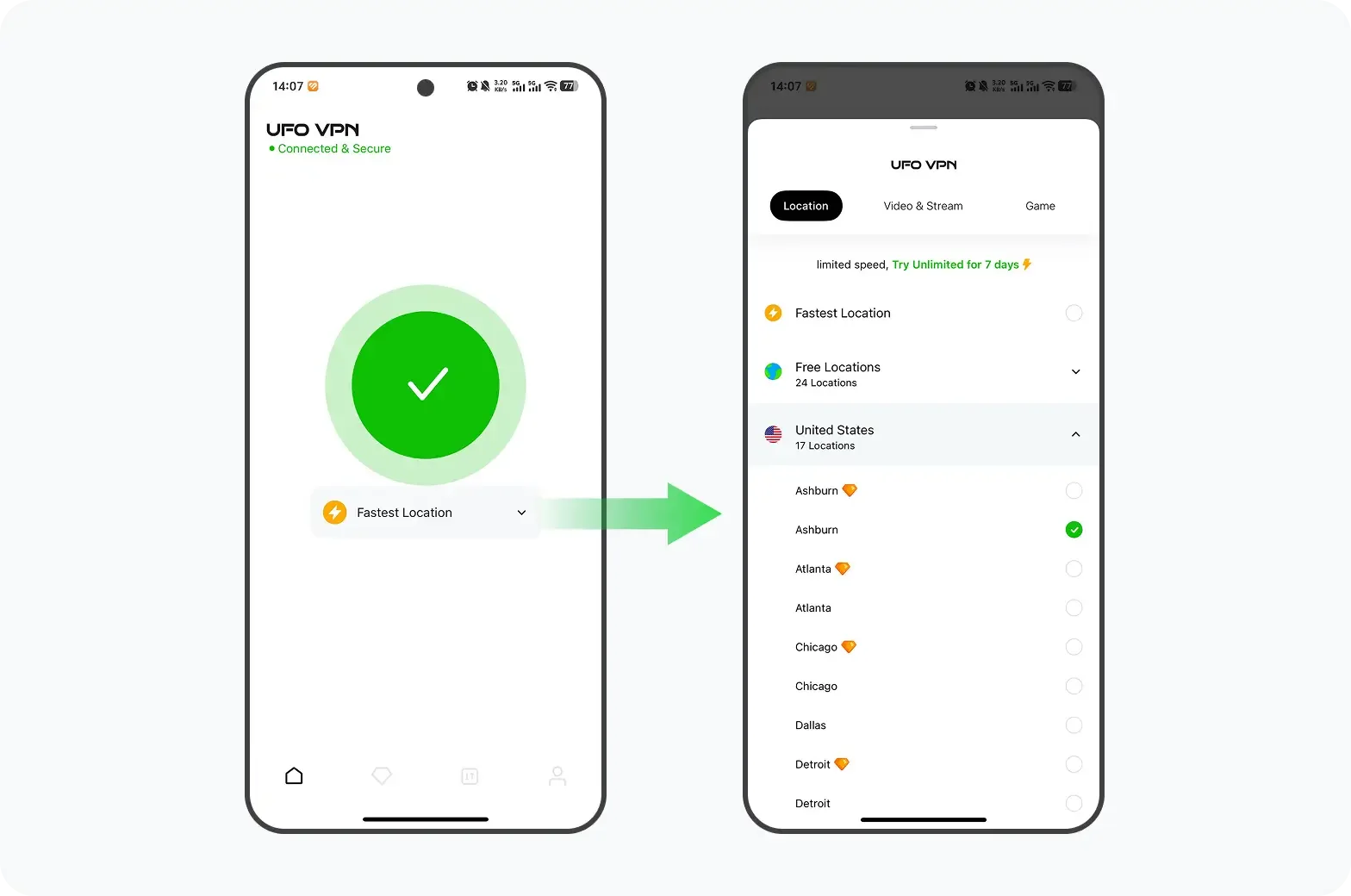
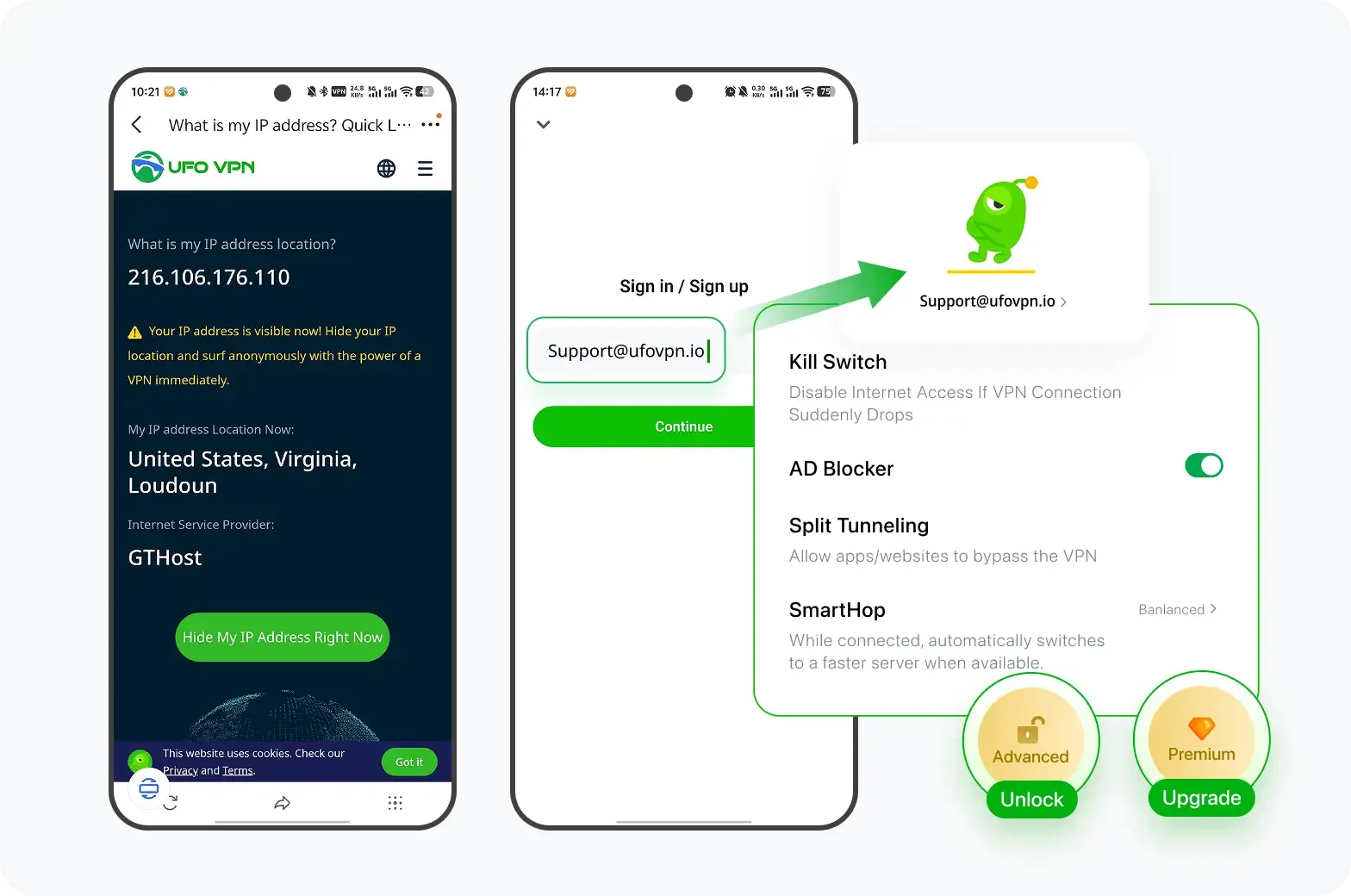
Conclusion
So, is Coinbase safe?
The answer is: safer than many alternatives, but not risk-free. Coinbase offers top-tier exchange security, but risks like phishing, regulatory oversight, and privacy loss still exist. Linking your bank account adds convenience but also increases exposure.
The safest approach is a layered security strategy:
Use Coinbase for trading and liquidity.
Transfer savings to a hardware wallet.
Always secure logins with 2FA and a VPN like UFO VPN.
Crypto is about balancing convenience with control. With the right habits, Coinbase can be a secure and practical part of your digital finance journey. 🚀
FAQs
Is Coinbase insured?
Yes, Coinbase provides limited insurance for assets stored in hot wallets. However, this does not cover personal mistakes like phishing scams.
Can Coinbase be hacked?
While rare, any online platform can be targeted. The bigger risk is usually user-side attacks like phishing or weak passwords.
Should I link my main bank account to Coinbase?
It’s safer to use a secondary account dedicated to crypto transactions, reducing exposure of your primary financial data.
Do I need a VPN for Coinbase?
Yes, especially when traveling or using public WiFi. UFO VPN adds a crucial encryption layer, preventing data leaks and account hijacking.
Is Coinbase better than Binance for safety?
Both are secure, but Coinbase is more regulated in the U.S. Binance may offer lower fees, but regulatory uncertainty is higher.






